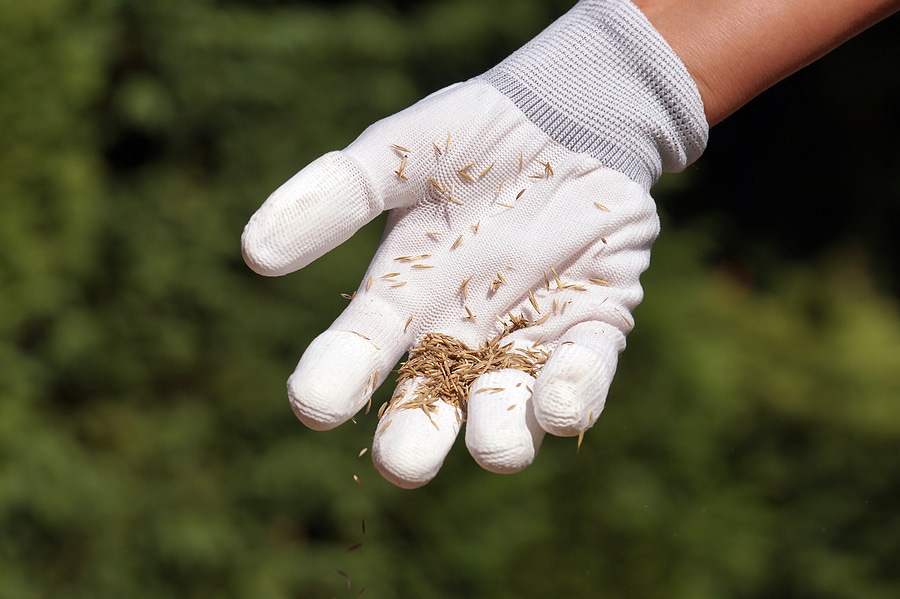Why You Should Overseed with Ryegrass
If you’re looking for an easy and cost-effective way to improve the condition of your lawn, consider seeding with ryegrass. Ryegrass is a type of cool-season grass that provides great coverage and integration with warm-season grasses. So, let’s look at why Nature’s Select Triangle recommends you overseed with ryegrass.

Ryegrass Improves Appearance
One of the main advantages of overseeding your lawn with ryegrass is that it will fill in any bare spots or thinning areas, creating a greener and more uniform look. Since ryegrass is winter hardy, it can survive colder temperatures better than other cool-season grasses, making it ideal for North Carolina winters.
Ryegrass Is Easy to Maintain
Ryegrass is also relatively easy to maintain, compared to other types of grasses. It requires less water than most other types of grasses, so if you live in an area where water restrictions are in place during certain times of the year, then overseeding with ryegrass may be the best option for you. Additionally, ryegrass has fewer pest problems compared to other types of turfgrass due to its high resistance to disease and insects.
Offers Soil Stability
Because ryegrass is a cool-season grass, it thrives when your other grasses go dormant in the winter. This not only provides a green landscape even when it snows, but it also guarantees soil stability. This means you won’t have to worry about soil run-off when the snow melts, nor will your lawn look patchy in the spring. Overall, overseeding with ryegrass means your lawn is healthy all year long.
Biological Lawn Care Starts Here
Biological lawn care means working with nature, not against it. That means Nature’s Select Triangle works with the natural microbiome in your soil to give you a lush, green landscape. By overseeding with ryegrass, we’re able to help your Bermuda, zoysia, and centipede lawns look their best all year long. So, no matter where you live in Chapel Hill, NC, our team will be there for you! We can even treat lawn diseases, pests, and tree diseases. Contact us today at (919) 240-4239.